Organized by: Bangladesh Centre for Advanced Studies (BCAS)
Supported by: Christian Aid, Bangladesh under LCB & CA Project
Date: 17-19 April, 2012
Venue: CARITAS Training Centre, Mirpur, Dhaka
Day-1:
Climate change is a reality and no longer a future concern. Many adverse effects of climate change stimuli including variability and extreme are already visible and has a severe impact on development. In this regard, Bangladesh Centre for Advanced Studies (BCAS) organized a 3 days training workshop on “Capacity Building Training on Mainstreaming of Climate Change Adaptation into Development”, supported by Christian Aid (CA), Bangladesh under LCB and CA Project from 17th to 19th April, 2012 at the CARITAS Training Centre, Mirpur, Dhaka. During that 10 session program, several issues on climate change adaptation and development were discussed by the resource persons from BCAS, Christian Aid and the participants from different NGOs.
Session-1:
The training program has been inaugurated by Dr. Dwijen Mallick, Fellow from BCAS. He mentioned about the history, motto and future plan of the organization. In his speech, he added several climate change knowledge and its implications in Bangladesh. Mr. Khandaker Mainuddin, Senior Fellow, BCAS conferred the Welcome Address and mentioned about the Mainstreaming of Climate Change Adaptation into Development. He pointed out the difficulties in transfer of local knowledge into modern technology on adaptation in Bangladesh. He also cited “everyone is either stakeholder or contributor in climate change adaptation”. Mr. Shaheen Bin Siraz, Program Officer, Christian Aid presented the inaugural speech. He brought up several climate change adaptation and development related issues and mentioned “mainstreaming should be needed to incorporate by NGOs and dissemination of knowledge on climate change adaptation to the root level is inevitable.” Mr. Siraz also cited that the works of Christian Aid and its partner NGOs are to create example for the future and quoted that there should be a constant relation between individual and the community to take proper initiative for adaptation techniques.
Session-2:
The second session started with the presentation on “Scientific Basis of Climate Change: Adaptation and Mitigation as key responses” by Shah Ashraful Amin, Senior Program Officer, Christian Aid to enhance the basic understanding on the climate change science and issues. He mentioned that there are many dominant anthropogenic interventions to accelerate global warming. He quoted 4th Assessment Report (AR4) by IPCC saying, “It is very likely to change due to human intervention”. Mr. Amin also discussed about the global warming potential (GWP) and the sources of green house gases (GHGs) from different sector in Bangladesh. He showed some data on changes in GHGs from core to modern era and also showed a temperature model to clarify global emission scenarios to the participants. Mr. Amin also cited some consequences on sea level rise (SLR) and mentioned about the three changes that includes changes in means, extreme and exposure. He pointed out the some climate change related disasters that commonly occur in Bangladesh including erratic rainfall, cyclone, flood, drought and river erosion and quoted them as “A typology of hazard”. Finally, Mr. Amin discussed about the adaptation and mitigation measures by quoting, “Adaptation refers to manage the unavoidable; and Mitigation refers to avoid the unmanageable”. Participants asked several questions on global warming potential, green house gases, carbon properties and carbon trading. Mr. Amin clarified all of them to the participants and ended the session.
Session-3:
The third session was on the LCB-CA project presented by Golam Jilani, Project Coordinator LCB-CA, BCAS to provide an understanding to the participants about the project objectives, approaches, strategies and activities. He gave an overview of the project and mentioned about the project demonstration. He also added that the integration of the individual and organization and participatory approaches is foreseeable. He also gave a brief description about the project locations (Tungipara and Mongla) and discussed about the climate vulnerabilities in the respective study areas. Mr. Jilani focused on the local adaptation measures those are already undertaken in the project. He mentioned that local adaptation in the project areas (Mongla, Tungipara and Harirampur) should be prioritized. He also upraised several key learning and challenges on climate change adaptation in the project areas. Participant from Gono Unnayan Kendra (GUK), Gaibandha added that all the hidden potentials in the nature should be given importance. Dr. Dwijen Mallick from BCAS agreed with the statement and adjoined that there should be linkages between climate change adaptation and development and must be monitored, evaluated and assessed thoroughly.
Session-4:
The session 4 started with the presentation on “Climate Change Impact and Vulnerability in Bangladesh” by Dr. Dwijen Mallick, Fellow, BCAS. He quoted, “Climate change impact could be severe in Bangladesh…..Climate Change is a global phenomenon but the impact is region specific or local”. Dr. Mallick cited about the physical and social impact of climate change mentioning salinity intrusion in the interior and exposed coast of Bangladesh. He also discussed about the potential impacts of seasonal flood and specifically drought in the north-western area of Bangladesh. Participant from Rupantar, Khluna intervene and brought up the water-logging problems in Jessore due to KJDRP project. Dr. Dwijen inquired about the vulnerabilities due to climate change in different regions from the participants. The participants from Sylhet regions mentioned about the drinking water scarcity, agricultural disasters, and erratic rainfall, lack of irrigation facilities and systems. The participants also added that tea workers in Sylhet are not directly affected by climate change but the people in the Haor areas are very much adversely impacted due to erratic rainfall in those regions. Participants from Cox’s Bazaar included that during high tide, the agricultural lands get completely destroyed. However, he also added that due to erratic rainfall, salt farmers are affected vastly. Participants from the Floodplain zones complained about the increased erratic rainfall, river bank erosion and arsenic contamination in the ground water dropped off the economic development in those areas. Participants exampled; the water of the ponds and lakes were fresh to drink 4-5 years back but now they are utterly contaminated due to surface run off. They also added that water logging in the floodplains hampers fish cultivation. Participants from the coastal regions mentioned about some problems that occurs due to climate change including salinity intrusion, river erosion, erratic rainfall, lack of excavation of canals etc. they also added that shrimp cultivation is unreservedly hindered due to diseases. Participant from Shushilan included that salinity intrusion led to hamper agricultural practices in the coast. He also added that due to that reason people go to the Sundarbans; so that the rate of migration is tremendously increasing in the coastal areas. Participant from DSK complained about the high tidal surge that destroys embankments every year and added that this is one of the reasons of climate migration. Participant from Nagorik Uddyog mentioned that due to signals (warning before cyclones), fishermen cannot catch fish. He also added that people in Dakop upazilla are suffering from drinking water and pointed out that communication system gets hampered due to tidal surge in the area. Participant from Wave Foundation stated that in the last 5 to 7 years natural disasters (drought, flood) due climate change increased drastically in their project areas. In the end, Dr. Mallick pointed out some climate change indicators, associated impacts and their linkages in development in Bangladesh.
Session-5:
The session started with a Power-point presentation on “Adaptation to Climate Change: Concept and Approaches” by Mr. Zahirul Islam, Project Field Manager, BCAS to enhance the understanding of the participants about adaptation types, needs of adaptation in Bangladesh and identified constraints of adaptation and find out the possible solutions. He described the term ‘adaptation’ and mentioned that adaptation means risk management and reduction of vulnerability to climate variability, uncertainties and climatic extreme events. He added “Adaptation is uneven across societies and systems and varies according to systems”. He also pointed out the needs of adaptation to climate change and stated that adaptation is inevitable to reduce risks and vulnerability of community and sectors as well as to protect livelihoods and to promote sustainable development. Mr. Islam also mentioned about the types and approaches of adaptation and cited “Adaptation in natural system is autonomous, but very slow while anticipatory and planned adaptation in human and social systems could be prompt”. He also quoted, “Enhancement of adaptive capacity is a necessary condition for reducing vulnerability, particularly for the most vulnerable regions, nations and socio-economic groups”. Mr. Islam converse about the National Adaptation Programme of Action (NAPA, 2005), revised in 2009 and Bangladesh Climate Change Strategy and Action Plan (BCCSAP, 2009) and mentioned about the four building blocks of the BAP while developing country strategy and action plan considered by BCCSAP. He also had a discussion on the six pillars of Bangladesh strategy. Mr. Islam mentioned about the Adaptation Practices/Experiences in Bangladesh-Community based Adaptation and cited Reducing Vulnerability to Climate Change (RVCC) and South-South North-2 (SSN) as examples. He also discussed about some learning from the LCB project. Mr. Islam concluded his discussion with some adaptation constraints and challenges in Bangladesh mentioning that lack of adaptive capacity (knowledge, resource and technology) and adequate tools to integrate climate change adaptation into development planning and process are the major constraints. He also cited that Integration of climate change adaptation into sectoral policy-making and a transformation needs to be made towards long-term planning of issues such as climate change.
Day-2:
The second day started with the recap of the previous day’s discussion presented by Mr. Kamrul Hasan Jilani from GUK, Gaibandha. However, all the participants responded in the reviewing session. A group exercise on ‘climate change adaptation barriers’ was held after the recap of the previous discussions. Dr. Dwijen Mallick, Fellow, BCAS stated that the group exercise would be done by the participants according to their belonging ecosystem. He elaborated the exercise being done by a group; however, participants were divided into 3 groups: i) Coastal Zone, ii) Floodplains and Haor areas and iii) Drought prone zones of the North-West. One participant from each group presented their exercise and shared information from their perception on ‘climate change adaptation barriers’. Dr. Mallick showed a video clips on adaptation technologies from an Indian study. Comparing the Indian study, Dr. Mallick referred that adaptation and technologies can be assured through proper dissemination of knowledge and awareness building. However, the findings from the group exercise are portrayed below:
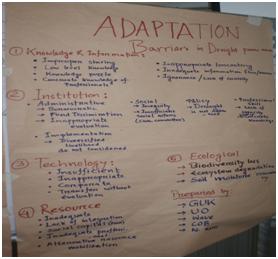 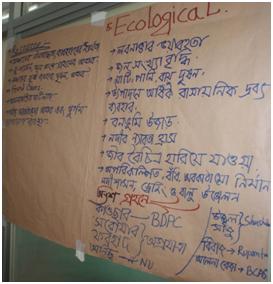
Session-6:
The session started with the presentation on “Gender and Climate Change Adaptation” by Ms. Olena Reza, Senior Program Manager and Gender Specialist, BCAS to enhance the understanding of women’s role and responsibilities for climate change adaptation initiatives. She stated that women are the most vulnerable due to climate change and its impacts. Ms. Reza mentioned that women’s role in decision making is very negligible as she reasoned the lack of education for women is the major barrier in our society. She also pointed out that women are more prone to malnutrition and several health hazards and do not get proper social security so that; they are migrating to urban areas. Ms. Reza brought up the issue of adaptation and mentioned that inclusion of women can play a key role in climate change adaptation and stated that better collaboration in gender is inevitable at the household and community level to deal with the climate risk. Dr. Anwara Begum Shelly, Director, Caritas Fisheries Program added that women in Bangladesh are greatly contributing to the local adaptation groups/programs and mostly in the agricultural practices in the north-western drought prone areas as well as in south-western coastal regions. She mentioned that empowerment of women through ‘local capacity building and advancing community based adaptation to climate change’ project can increase the mobility of women and enable women for practicing adaptation options at family and community level in the project areas. Ms. Reza concluded her presentation by mentioning that women participation to any development and climate change adaptation activities along with the men can achieve sustainability in the society.
Session-7:
The session started with the discussion on “Climate Smart Disaster Risk Management (CSDRM)” by Dr. Dwijen Mallick to develop the idea on Climate Smart Disaster Risk Management (CSDRM) to the participants. He defined CSDRM and cited “for development, disaster risk management is essential considering the issues of climate”. Mr. Zahirul Islam, Project Field Manager, BCAS, showed a power-point presentation on “Climate Smart Disaster Risk Management: Approaches and Strategies”. Mr. Islam referred that CSDRM is relatively a new term where integration of disaster risk management and climate are specified. He also mentioned about the uses of CSDRM in development projects and coping with uncertainties using it. Mr. Islam described the three pillars of CSDRM, proper uses of those pillars and illustrated how to tackle changing disaster risks and climate uncertainties. He also added that the enhancement of adaptive capacity is necessary to build a strong baseline of individuals or communities.
Session-8:
The session started with the presentation on “Climate Change, Development and Poverty & Livelihood Linkage in Bangladesh” by Mr. Khondaker Mainuddin, Senior Fellow, BCAS to enhance the understanding of the participants about the linkage between climate change, development and poverty and livelihoods in the perspective of Bangladesh. He stated that poverty alleviation concept started since early 70’s which has a huge impact on development. He mentioned about the impacts of Climate Change on Growth and Development and quoted “development has both positive and negative links with climate change”. However, he also mentioned that development having climate change phenomena in the sack is more difficult. Mr. Mainuddin gave a statement that there is a strong linkage between poverty and climate change. He cited, “if temperature increases, GDP goes down…if temperature increases production of goods and grains decreases”. He pointed out that this happens due to erratic rainfall, flood, cyclone, cold wave, salinity intrusion, flash floods and drought. Mr. Mainuddin also mentioned about the climate change obstructs achieving MDGs, impacts of climate change and food systems and livelihoods and climate sensitive strategies for promotion of livelihood. He highly recommended that development is needed but not at the cost of environment.
Session-9:
The session started with the presentation on “Development of Local Adaptation Plan of Action (LAPA)” by Dr. Dwijen Mallick, Fellow, BCAS to provide an understanding to local adaptation to help develop adaptation projects. Dr. Mallick described the functioning of LAPA and its participatory approaches in vulnerable areas. He mentioned the issues of analysis for local action plan and stated that the blending of quantitative and qualitative assessment and proper monitoring with appropriate participatory approaches can help to develop a successful adaptation project. Dr. Mallick discussed the key steps of LAPA formulation and added that most important is the engagement of the local communities and actors in planning and implementation. He showed results of a participatory vulnerability assessment (PVA) from farmers view as examples. He concluded the discussion mentioning the key elements of LAPA such as impacted areas, risk and vulnerabilities, coping, adaptation options and responses with examples.
Day-3:
Session-10:
The session started with the presentation on “Mainstreaming/Integration of Climate Change Adaptation into Development and Challenges” by Dr. Dwijen Mallick to help build understanding of participants in mainstreaming climate change adaptation into various development programs. He mentioned about the necessity of mainstreaming; saying that to initiate an adaptation program, the negative impacts of climatic hazards should be identified at first and to take proper action on those. He also stated that integration of adaptation into development should be the strength to kick off a program and turn the barriers into opportunities. Dr. Mallick mentioned about the relationship between natural environment and climate change with an example of a training program in India.
After the 1st session of day 3, participants of the training program attended a group discussion on “Strength, weakness and opportunities” of their corresponding organizations in terms of needs and priorities for mainstreaming climate change into development to help integrate adaptation into development programs. The participants presented their observations of their employer on the basis of these obligations. Some of them are given below:
» Strength:
- Experienced personnel
- Multi-disciplinary think tank
- Motivated locals
- Necessary infrastructure
» Weaknesses:
- Fund crisis
- Interruption of climate change adaptation projects
- Unawareness of top positions about climate change
- Lack of climate change experts
» Opportunities:
- Growing concern over climate change phenomena
- Young motivating professionals
- Huge scope of work
Session-11
The session started with presentation on “Climate Justice and Governance” by Mr. Golam Jilani and Mr. Bidan Chandra Tikader of BCAS to improve the idea on climate justice and actions. They presented the issues of climate justice, agendas and governance over climate change. After the presentation the participants expressed their opinion about climate justice. Couple of suggestion over the matter came into forth.
Those were:
- Requirement of South-South partnership to defend the developed states.
- Necessity of new networks.
- Awareness creation.
- Metal pressure creation over developed countries before “Conference of parties” by road march, campaign, meetings etc
Evaluation
In this session participants answered six questions over an answer sheet. The questions were related to climate science, adapting climate change, climate smart disaster risk management, coping and adaptation, local adaptation plan of action etc.
Closing session
In this session, the participants shared their feeling of the training workshop. They demanded a module of the training workshop, an online platform for inter organizational networking, facilitation guidelines, necessary training of a focal person of each organization, co-ordination meeting and exposure visits.
Mr. Khandaker Mainuddin expressed his feelings as a representative of BCAS and Mr. Shaheen Bin Siraz, representative of CA gave the closing speech. He uttered that, Christian Aid is willing to give the necessary supports including report and module of the training workshop, co-ordination meeting, online google group for networking etc.
Prepared by: Sadman K Monsur (BCAS) |

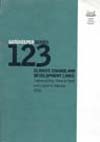
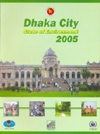


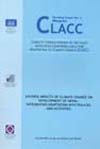
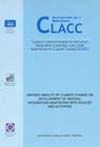
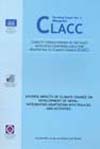

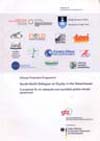

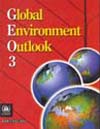

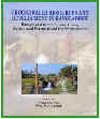

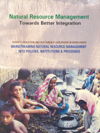
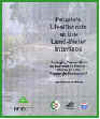
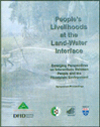
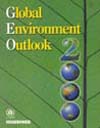
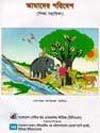
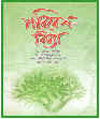
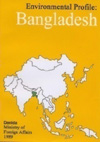
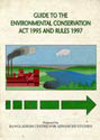
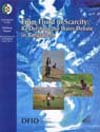
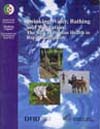
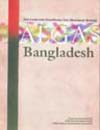
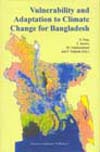
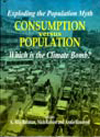
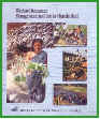
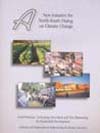
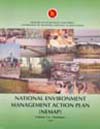



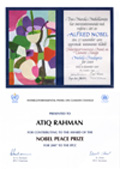 Nobel Peace Prize in 2007
Nobel Peace Prize in 2007 Champions of Earth
Champions of Earth Paribesh Padak
Paribesh Padak